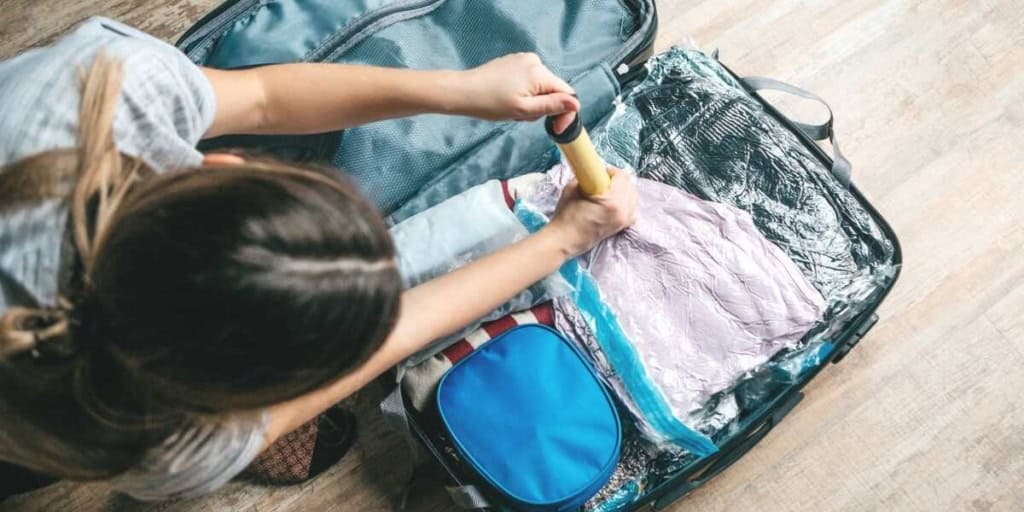Interview with Cigna Global’s Neil Kirby: The Future of International Health Insurance
Explore the future of international health coverage in an exclusive interview with Neil Kirby, CEO of Cigna Global Individual Health.

International medical cover for expats and their families.
Medical and trip cancellation coverage for international travel.
Life insurance for globally mobile individuals living or working abroad.
Comprehensive international medical coverage for groups.
Medical, accident, and liability protection for global travel.
Financial protection for employees worldwide.
Most Popular Country Guides
Healthcare, insurance, and living insights to plan life and travel in each destination.
Healthcare, safety, and practical guidance for living abroad.
Tips and guidance for safer, smarter international travel.
Resources for global mobility, HR, and international teams.
Plan your overseas trip with ease using this essential international travel checklist, covering visas, flights, insurance, packing, and more.


Traveling abroad is exciting, but planning an international trip can sometimes feel overwhelming. From researching destinations and creating an itinerary to setting a budget and gathering important documents, there’s more to it than just booking a flight and heading to the airport.
But don’t worry – our international travel checklist will guide you every step of the way. Whether you’re a first-time traveler or a seasoned globetrotter, we’ve got you covered with everything you need to plan your overseas trip with confidence and ease.
Choosing where to go is the first – and most exciting – step on our international travel checklist. But whether you’re dreaming about your travel bucket list or getting inspired by scrolling through Instagram, it’s essential to think beyond just what looks good on camera.
When deciding on a destination, consider your budget and the amount of time you have available. It’s better to choose a place that fits your plans and wallet than to get overwhelmed by somewhere out of reach. Flights, hotels, food, and activities all add up, so pick a spot that suits your financial and time constraints.
Some locations are perfect for a quick getaway, while others deserve a longer stay to truly soak it all in. Also, consider how easy it is to get there – long layovers or complicated flights can drain your energy before the fun even begins.

Finally, think about the kind of adventure you’re after. Whether it’s culture, hiking, food, or just relaxing, choose a destination that matches your vibe.
Knowing how to plan an international trip starts with understanding the experience you want, and letting that guide every decision that follows.
If you need inspiration, tools like Kayak Explore or Weather2Travel can help you discover places that fit your ideal weather and activities.
One of the first steps on your international travel checklist is to ensure your passport is valid and that you have the necessary visa for your destination country.
Before booking your trip, take the time to research the visa requirements specific to your nationality and the duration of your stay.
Some countries offer visas on arrival, while others require you to apply in advance, sometimes weeks or even months ahead. Be sure to give yourself plenty of time to complete the process without stress.
It’s also important to check your passport’s expiration date, as many countries require it to be valid for at least six months beyond your planned return date.
Be sure to look into:
For the most accurate and up-to-date information, visit your destination country’s official embassy website or consult the U.S. State Department’s country-specific travel pages.

Make backups! Make copies of your passport and visa, especially the ID and visa pages. Leave one copy with someone at home and carry another separately from the originals. If your passport is lost or stolen, having backups can make the replacement process much smoother and faster. Storing digital versions securely online is also a smart idea.
Once you’ve confirmed your passport and visa requirements, it’s time to lock in your travel and lodging arrangements. This is one of the key steps in our international travel checklist to help keep your trip organized and stress-free.
To get the best fares, plan to book your flights well in advance – ideally at least three weeks before departure.
Midweek flights, especially on Tuesdays or Wednesdays, are often cheaper than weekend options. Being flexible with your travel dates can also help you find better deals and save money.
Compare prices across multiple sites such as Kayak, Skyscanner, or Google Flights to find the best options. Consider your preferred travel times and whether you prefer direct flights or are willing to accept layovers for additional savings.
Choosing the right accommodations is a key part of planning an international trip. After all, where you stay will shape your overall experience, so be sure to consider what fits your needs and budget:
If you prefer flexibility, you don’t have to book your entire stay upfront, but be sure to reserve at least your first night.
Most countries require an address on immigration forms, and having a confirmed place to arrive at will help ease travel fatigue after a long flight.
When planning a trip, many travelers ask themselves, “Is travel insurance worth it?” While it might feel like an extra expense, the financial risks of traveling without coverage can far outweigh the cost.
Travel insurance isn’t just for long vacations or luxury getaways. Even for trips as short as five days, it provides valuable protection against injuries, illnesses, lost luggage, or delays. It’s a must on any international travel checklist for planning a responsible and worry-free trip abroad.
Since medical treatment abroad can be expensive, having a solid travel plan ensures you’re covered for emergencies, hospital visits, and even medical evacuation, giving you peace of mind wherever you go.
In some cases, travel insurance is even a requirement for entering certain countries, especially when applying for a visa, so having proof early on is essential.

Ultimately, travel insurance helps prevent both minor mishaps and major emergencies from derailing your plans – and it might be more affordable than you think.
Plans typically range from $1 to $5 per day, depending on your age, trip details, and the level of coverage you choose. That’s a small price to pay considering a medical evacuation alone can easily cost over $100,000.
If you want to explore your options, check out our travel insurance comparison page to find the best plan for you.
Making sure your health is in check should be an essential part of your international travel checklist.
Before you jet off, visit your doctor for a general checkup and ensure you’re up to date on routine vaccines.
Many countries require proof of specific vaccinations to cross their borders, and some may involve multiple doses administered over weeks or even months. Therefore, ideally, start planning at least eight weeks before your departure.
The Centers for Disease Control and Prevention (CDC) is a reliable resource for checking which vaccines are recommended or required by country. Depending on your destination, your doctor may also recommend visiting a travel clinic for additional vaccinations.
It’s also wise to stay updated on travel advisories for your destination, including health warnings and reports of political unrest, so you can adjust your plans as needed. Official sources, such as the U.S. Department of State website, offer up-to-date, country-specific information.
Finally, don’t forget to review your destination’s local laws and regulations, especially if you plan to travel with prescription or over-the-counter medications.
Some countries regulate certain drugs differently, including common narcotics or psychotropics, so what’s legal at home might be restricted abroad.
Contacting the embassies or consulates of your destination is a good way to ensure you have the latest information.
Even if your medications are perfectly legal, pack them in your carry-on and bring copies of your prescriptions to avoid delays or issues at customs.
Managing your money wisely is crucial to successfully planning an international trip.
Before traveling, ensure you have sufficient funds set aside for your trip. While most destinations widely accept credit cards, it’s always a good idea to carry some local cash for small expenses.
Convert your money into the local currency before you leave, as this is usually cheaper than doing it overseas.
Notify your bank or credit card issuer of your travel plans to avoid them flagging your card for suspicious activity. Also, consider leaving behind any cards you won’t be using to reduce the risk of fraud.
Bring an ATM card for emergencies in case you run out of cash. ATMs are common in most places, but make sure you’ve memorized your PIN, especially if the display and keypads are in a different language.
To stay on top of your expenses, create a travel budget in advance and estimate how much you’ll spend on transportation, food, attractions, and shopping.
Budgeting apps like TravelSpend, Mint, or Revolut can help you easily track your daily expenses, set limits, and manage currency conversions.

Bring cash for the little things. Use credit cards for most purchases at restaurants, shops, and hotels, but always keep some cash on hand for places that don’t accept cards, like street vendors, taxis, and local markets. Keep it in a secure yet easily accessible spot, such as a money belt or a zippered pocket, and avoid pulling out large wads of cash in public.
One of the most exciting parts of planning an international trip is imagining the experiences you want to have.
As you research your destination, start creating a list of places and activities that appeal to you most; think museums, natural landmarks, festivals, walking tours, and must-try local foods.
Use travel blogs, guidebooks, and official tourism websites to gather ideas. Ask friends or family who’ve been there for tips on what’s worth seeing and what to skip.
Online forums such as Reddit’s r/travel or TripAdvisor Travel Forums are also great for asking questions and receiving firsthand advice from travelers and locals alike.

Once you’ve gathered inspiration, organize your list by location or day. You don’t need to plan every hour, but having a flexible itinerary will help you make the most of your time and ensure you don’t miss anything you really want to do.
When you arrive, stay open to spontaneous detours and local recommendations. Some of the best travel moments happen unexpectedly, so be sure to drop by the tourist office, chat with locals, or connect with fellow travelers.
By blending your pre-trip planning with openness to new experiences, you’ll uncover hidden gems and create truly authentic, unforgettable memories.
Before traveling abroad, take time to understand the culture and laws of your destination.
This small but essential step is a key part of any international travel checklist, helping you avoid culture shock, prevent miscommunications, and ensure you don’t unintentionally offend locals. It’s also essential for planning your trip thoughtfully and responsibly.
Customs regarding greetings, tipping, dress, and personal space vary widely between countries. What’s polite or casual at home might be inappropriate, or even offensive, elsewhere.
For example, tipping is uncommon in Japan and can be seen as awkward, while touching someone’s head, even affectionately, is considered disrespectful in Thailand. Many religious sites also prohibit showing too much skin, such as wearing shorts or sleeveless tops.
It’s also essential to know local laws, especially when they differ from those in your home country. Some actions that seem harmless can have serious consequences abroad.
For instance, the sale and importation of chewing gum are banned in Singapore, and improper disposal can result in fines of up to S$1,000 for first-time offenders.
Similarly, taking photos of government buildings, military sites, or police is prohibited in countries such as Egypt, Turkey, and Morocco, where violations can result in fines, equipment confiscation, or even detention.
Before you go, check your destination’s embassy website or trusted government travel advisories to learn about local rules, dress codes, restricted items, and safety concerns.
You don’t need to be an expert, but a little research goes a long way. Knowing what to expect will help you travel with confidence and respect.

Learn the lingo! Learn a few simple phrases in the local language, like “hello,” “please,” “thank you,” and “how much?” While it might not be a requirement for international travel, locals appreciate it when visitors make the effort to communicate in their native language. Use apps like Duolingo, Babbel, or Memrise to memorize phrases before you leave.
Being prepared for emergencies is essential when traveling internationally. Before you go, familiarize yourself with local emergency numbers (such as 112 or the country-specific equivalent), nearby hospitals, and your travel insurance’s emergency contacts.
Many travelers find it helpful to carry printable emergency cards or download safety apps that provide quick access to this vital information.
Pack a basic first-aid kit with essentials like bandages, pain relievers, and personal medications to handle minor health issues on the go.
If you’re a U.S. citizen, consider enrolling in the Smart Traveler Enrollment Program (STEP) through the U.S. Department of State. STEP informs you about safety conditions at your destination, allows the embassy to contact you during emergencies, and assists with evacuation if needed.
It’s also wise to register your trip with your country’s embassy or consulate to receive important alerts and travel advisories, and to access assistance if necessary. Save your embassy’s address, phone number, and email address on your phone and in writing for quick reference.
Have a local emergency contact, such as your hotel’s front desk or a trusted local friend, and keep some emergency cash in the local currency, along with a backup credit card.
Finally, before you leave, share your travel plans and emergency contact details with a trusted friend or family member so someone back home knows how to reach you if needed. When it comes to travel safety, you can never be too prepared.
After all your careful trip planning, it’s finally time to pack, and packing smart is a crucial step on any international travel checklist. What you bring can make a huge difference in your comfort and convenience while traveling.
Start by creating a packing list tailored to your destination’s climate and activities. What you bring for a beach vacation in Costa Rica will differ significantly from what you need for glacier hikes in Norway or temple visits in Thailand.
Focus on lightweight, quick-drying, multipurpose clothing and a comfortable pair of walking shoes. Always include at least one nice outfit – you never know when you might be invited to a special event or want to dress up during your trip.
If your itinerary covers multiple destinations or spans several weeks, consider arranging for someone to store and send you items as needed, or renting specialty gear, such as snowsuits, at your destination.

Don’t forget essential tech accessories, such as a universal plug adapter to keep your devices powered anywhere, and a reliable power bank to keep your phone charged on the go.
Label your luggage clearly with your name, address, and contact information both inside and outside the bags, using sturdy tags that won’t easily come off.
Check whether your destination recognizes TSA-approved locks. However, note that airport security may still inspect your bags.
Avoid packing items you can easily buy at your destination, as this frees up valuable space for essentials and keeps your luggage light for souvenirs.
As a general rule, leave valuables like expensive jewelry or high-end gadgets at home to minimize the risk of loss or theft.
Packing smart and light means less hassle, more comfort, and greater freedom to enjoy your adventure.

Roll, squish, repeat! To save space, use lightweight packing cubes and roll your clothes rather than fold them. For bulky items like jackets or sweaters, vacuum compression bags work wonders by squeezing out excess air. Whenever possible, wear your bulkiest items, like coats or boots, on the plane to free up valuable luggage space.
The final step in trip planning is getting ready for your flight. In addition to packing your passport, tickets, and travel documents, make sure you’re prepared for the journey itself.
Fully charge your devices and bring a backup battery to keep them powered. Download movies, books, podcasts, or any entertainment you’ll want during the flight.
Don’t forget to pack some extra snacks, as airport prices can be steep, especially if there are delays.
Being ready for the flight will keep you comfortable and stress-free from takeoff to landing.
Good planning is the key to stress-free travel — from choosing the perfect destination and organizing your documents to setting a budget and packing smart. Planning an overseas trip well means covering all these essential steps.
With this international travel checklist in hand, you’ll be well-equipped to enjoy a smooth, safe, and unforgettable adventure.
Don’t forget that travel insurance is your safety net against the unexpected and an essential part of planning any trip overseas.
With the right coverage in place, you can travel with confidence and embrace new and exciting experiences along the way. After all, that’s what makes every trip truly memorable.
Now, it’s time to pack your bags, embrace the journey, and let the adventure begin. Safe travels!